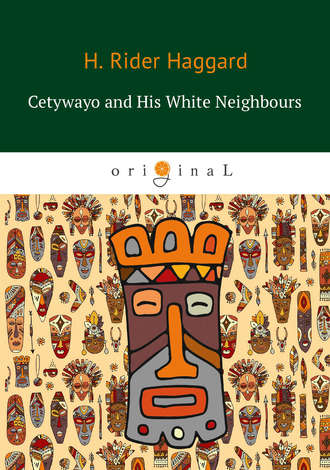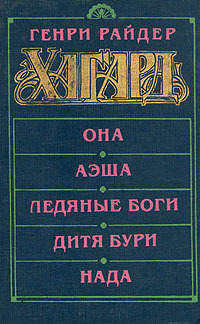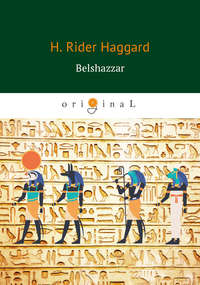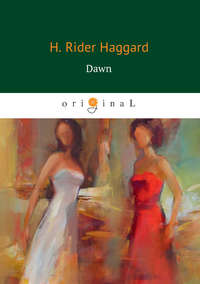
Полная версия
Cetywayo and His White Neighbours
To this impostor adherents flocked from all parts of Zululand, and Umlandela flying for his life into John Dunn’s territory, Sitimela seized upon the chieftainship. The Resident thereupon ordered him to appear before him, but he, as might be expected, refused to come. As it was positively necessary to put an end to the plot by some means, since its further development would have endangered and perhaps destroyed the weak-knee’d Zulu settlement, Mr. Osborn determined to proceed to the scene of action. Mahomet would not go to the mountain, so the mountain had to go to Mahomet. On arrival he pitched his tents half way between the camps of Sitimela and John Dunn, who had Umlandela under his charge, and summoned Somkeli, the author of the plot, to appear before him. Ten days elapsed before the summons was obeyed. During this time, and indeed until they finally escaped, the Resident and his companion could not even venture to the spring, which was close at hand, to wash, for fear of being assassinated. All day long they could see lines of armed men swarming over the hills round them, and hear them yelling their war-songs. At length Somkeli appeared, accompanied by over a thousand armed warriors. He was ordered to withdraw his forces from Sitimela’s army and go home. He went home, but did not withdraw his forces. The next day Sitimela himself appeared before the Resident. He was ordered to come with ten men: he came with two thousand all armed, wild with excitement and “moutied” (medicined). To make this medicine they had killed and pounded up a little cripple boy and several of Umlandela’s wives. It afterwards transpired that the only reason Sitimela did not then and there kill the Resident was that he (Mr. Osborn) had with him several chiefs who were secretly favourable to Sitimela’s cause, and if he had killed him he would, according to Zulu custom, have had to kill them too. Mr. Osborn ordered Sitimela to disperse his forces or take the consequences, and waited a few days for him to do so; but seeing no signs of his compliance, he then ordered the neighbouring chiefs to fall on him, and at length withdrew from his encampment, – none too soon. That very night a party of Sitimela’s men came down to kill him, and finding the tent in which he and his companions had slept standing, stabbed at its supposed occupants through the canvas.
Sitimela was defeated by the forces ordered out by the Resident with a loss of about 500 men. It is, however, worthy of note, and shows how widespread was the conspiracy, that out of all the thousands promised, Mr. Osborn was only able to call out two thousand men.
The appointment, however, that has occasioned the most criticism is that of John Dunn, who got the Benjamin share of Zululand in preference to his brother chiefs. The converting of an Englishman into a Zulu chief is such a very odd proceeding that it is difficult to know what to think of it. John Dunn is an ambitious man, and most probably has designs on the throne; he is also a man who understands the value of money, of which he makes a great deal out of his chieftainship. At the same time, it is clear that, so far as it goes, his rule is better than that of the other chiefs; he has a uniform tax fixed, and has even done something in the way of starting schools and making roads. From all that I have been able to gather, his popularity and influence with the Zulus are overrated, though he has lived amongst them so many years, and taken so many of their women to wife. His appointment was a hazardous experiment, and in the long run is likely to prove a mischievous one, since any attempted amendment of the settlement will be violently resisted by him on the ground of vested interests. Also, if white men are set over Zulus at all, they should be gentlemen in the position of government officers, not successful adventurers.
Perhaps the only wise thing done in connection with the settlement was the appointment of Mr. Osborn, C.M.G., as British Resident. It is not easy to find a man fitted for that difficult and dangerous position, for the proper filling of which many qualifications are required. Possessed of an intimate knowledge of the Zulus, their language, and their mode of thought and life, and being besides a very able and energetic officer, Mr. Osborn would have saved the settlement from breaking down if anybody could have saved it. As it is, by the exercise of ceaseless energy and at great personal risk, he has preserved it from total collapse. Of the dangers and anxieties to which he is exposed, the account I have given of the Sitimela incident is a sufficient example. He is, in fact, nothing but a shadow, for he has no force at his command to ensure obedience to his decisions, or to prevent civil war; and in Zululand, oddly enough, force is a remedy. Should one chief threaten the peace of the country, he can only deal with him by calling on another chief for aid, a position that is neither dignified nor right. What is worst of all is that the Zulus are beginning to discover what a shadow he is, and with this weakened position he has to pit his single brains against all the thousand and one plots which are being woven throughout Zululand. The whole country teems with plots. Mnyamane, the late Prime Minister, and one of the ablest, and perhaps the most influential man in Zululand, is plotting for the return of Cetywayo. Bishop Colenso, again, is as usual working his own wires, and creating agitations to forward his ends, whatever they may be at the moment. John Dunn, on the other hand, is plotting to succeed Cetywayo, and so on ad infinitum. Such is the state of affairs with which our unfortunate Resident has to contend. Invested with large imaginary powers, he has in reality nothing but his personal influence and his own wits to help him. He has no white man to assist him, but living alone in a broken-down tent and some mud huts built by his son’s hands (for the Government have never kept their promise to put him up a house), in the midst of thousands of restless and scheming savages, amidst plots against the peace and against his authority, he has to do the best he can to carry out an impracticable settlement, and to maintain the character of English justice and the honour of the English name. Were Mr. Osborn to throw up his post or to be assassinated, the authorities would find it difficult to keep the whole settlement from collapsing like a card castle.
Nobody who understood Zulu character and aspirations could ever have executed such a settlement as Sir Garnet Wolseley’s, unless he did it in obedience to some motive or instructions that it was not advisable to publish. It is true that Sir Garnet’s experience of the Zulus was extremely small, and that he put aside the advice of those who did know them with that contempt with which he is wont to treat colonists and their opinions. Sir Garnet Wolseley does not like colonial people, possibly because they have signally failed to appreciate heaven-born genius in his person, or his slap-dash drumhead sort of way of settling the fate of countries, and are, indeed, so rude as to openly say, that, in their opinion, he did more mischief in Africa in a few months, than it would take an ordinary official a lifetime to accomplish.
However this may be, stop his ears as much as he might, Sir Garnet cannot have been entirely blind to the import of what he was doing, and the only explanation of his action is that he entered on it more with the idea of flattering and gratifying English public opinion, than of doing his best for the Zulus or the white Colonists on their borders. A great outcry had been raised at home, where, in common with most South African affairs, the matter was not thoroughly understood, against the supposed intended annexation of Zululand for the benefit of “greedy colonists.” It was argued that colonists were anxious for the annexation in order that they might get the land to speculate with, and doubtless this was, in individual instances, true. I fully agree with those who think that it would be unwise to throw open Zululand to the European settler, not on account of the Zulus, who would benefit by the change, but because the result would be a state of affairs similar to that in Natal, where there are a few white men surrounded by an ever-growing mass of Kafirs. But there is a vast difference between Annexation proper and the Protectorate it was our duty to establish over the natives. Such an arrangement would have presented few difficulties, and have brought with it many advantages. White men could have been forbidden to settle in the country. A small hut-tax, such as the Zulus would have cheerfully paid, would have brought in forty or fifty thousand a year, an ample sum to defray the expenses of the Resident and sub-Residents: the maintenance of an adequate native force to keep order: and even the execution of necessary public works. It is impossible to overrate the advantages that must have resulted both to the Zulus and their white neighbours from the adoption of this obvious plan, among them being lasting peace and security to life and property; or to understand the folly and cruelty that dictated the present arrangement, or rather want of arrangement. Not for many years has England missed such an opportunity of doing good, not only at no cost, but with positive advantage to herself. Did we owe nothing to this people whose kingdom we had broken up, and whom we had been shooting down by thousands? They may well ask, as they do continually, what they have done that we should treat them as we have and are doing?
It cannot be too clearly understood, that, when the Zulus laid down their arms they did so, hoping and believing that they would be taken over by the English Government, which, having been fairly beaten by it, they now looked on as their head or king, and be ruled like their brethren in Natal. They expected to have to pay taxes and to have white magistrates placed over them, and they or the bulk of them looked forward to the change with pleasure. It must be remembered that when once they have found their master, there exists no more law-abiding people in the world than the Zulus, provided they are ruled firmly, and above all justly. Believing that such a rule would fall to their lot they surrendered when they did. How great, then, must their surprise have been when they found, that without their wishes being consulted in the matter, their own hereditary king was to be sent away, and thirteen little kings set up in his place, with, strangest of all, a white man as chief little king, whilst the British Government contented itself with placing a Resident in the country, to watch the troubles that must ensue.
Such a settlement as this could only have one object and one result, neither of which is at all creditable to the English people. The Zulus were parcelled out among thirteen chiefs, in order that their strength might be kept down by internecine war and mutual distrust and jealousy: and, as though it were intended to render this result more certain, territories were chucked about in the careless way I have described, whilst central authority was abolished, and the vacant throne is dangled before all eyes labelled “the prize of the strongest.” Of course Sir Garnet’s paper agreements with the chiefs were for the most part disregarded from the first. For instance, every chief has his army and uses it too. In Zululand bloodshed is now a thing of every-day occurrence, and the whole country is torn by fear, uncertainly, and consequent want.[6] The settlement is bearing its legitimate fruit; some thousands of Zulus have already been killed in direct consequence of it, and more will doubtless follow. And this is the outcome of all the blood and treasure spent over the Zulu war! Well, we have settled Zululand on the most approved principles, and thank Heaven, British influence has not been extended!
To show that I am not singular in my opinion as to the present state of Zululand, I may be allowed to quote a few short extracts taken at random, from half-a-dozen numbers of the “Natal Mercury.” Talking of the Zulu settlement terms as dictated by Sir G. Wolseley, the leading article of the issue 21st November 1881 says: – ”It will at once be apparent that these terms have in several cases been flagrantly violated, especially as regards clauses of 2, 3, 4, and 6. This last will assuredly be broken again and yet again, so long as the British Resident occupies the position of an official mollusc. The chiefs themselves perceive and admit the evils that must arise out of the absence of any effective central authority. These evils are so obvious, they were so generally recognised at the outset as being inherent in the scheme, that we might almost suppose their occurrence had been deliberately anticipated as a desired outcome of the settlement. The morality of such a line of policy would be precisely on a par with that which is involved in the proposal to reinstate Cetywayo as a means of dealing with the Boers. The creation of thirteen kinglets in order that they might destroy each other, is as humane and high-minded an effort of statesmanship as would be the restoration of a banished king in order that he might eat up a people to whom the same power has just given back their independence. To the simple colonial mind such deep designs of Machiavellian statecraft are as hateful as they are inhuman and dishonest.”
A correspondent of the “Mercury” in Zululand writes under date of 13th October: —
“I send a line at the last moment to say that things are going from bad to worse at railway speed. Up to the arrival of Sir Evelyn Wood, the chiefs did not fully realise that they were really independent at all. Now they do, and if I mistake not, like a beggar on horseback will ride to the devil sharp. Oham has begun by killing a large number of the Amagalusi people. My information is derived from native sources, and may be somewhat exaggerated. It is that the killed at Isandhlwana were few compared with those killed by Uhamu a few days ago. Usibebu also and Undabuka are, I am told, on the point of coming to blows; and if they do that it will be worse still, for Undabuka will find supporters throughout the length and breadth of Zululand. Undabuka, the full brother of the ex-king, is the protege of the Bishop of Natal. The Bishop, I find, has again sent one of his agents (Amajuba by name) calling for another deputation. The deputation is now on its way to Natal, and that, I understand, against the express refusal of the Resident to allow it.” In the issue of 14th November is published a letter from Mr. Nunn, a gentleman well known in Zululand, from which, as it is too long to quote in its entirety, I give a few extracts: – ”Oham’s Camp, Oct.15. – The Zulus cannot comprehend the Transvaal affair, and it has been industriously circulated among them that the English have been beaten and forced to give back the Transvaal. They do not understand gracious acts of restoration after we have been beaten. Four times this year has Umnyamana called his army together and menaced Oham, who has several times had to have parties of his followers sleeping around his kraal in the hills adjacent, so as to give him timely notice to fly. When Oham left his kraal for the purpose of attending the meeting at Inslasatye, the same day the whole of the Maquilisini Tribe came on to the hills adjacent to Oham’s kraal, the ‘Injamin,’ and threatened that district. This has been the case on two or three former occasions, and simultaneously Umnyamana’s tribe and Undabuka’s followers always flew to arms, thus threatening on all sides… Trading is and has been for months entirely suspended in this district. The fields are unplanted, no ploughs or Kafir-picks at work – all are in a state of excitement, not knowing the moment a collision may take place. Hunger will stare many in the face next year, and all the men yelling to their chiefs to be let loose and put an end to this state of uncertainty.”
Mr. Nunn encloses an account by an eye-witness of a battle which took place on the 2d October 1881 between Oham’s army and the Maquilisini Tribe. The following is an extract: – ”On the 2nd there was a heavy mist, and on moving forward the mounted party found themselves in the midst of the enemy (the Maquilisini), and on hearing a cry to stab the horses, they rode through them with no casualty (except one horse slightly wounded with a bullet). The army, moving in a half circle, now became generally engaged in a hand-to-hand fight, and our men were checked and annoyed by a number of the enemy armed with guns, who were in a stone-kraal and kept up a constant fire. Amatonga, now at the head of the mounted party, charged and drove the enemy out of the kraal, from which they three several times charged the enemy on the flank, assisted by a small infantry party, and cut paths through their ranks. The fight, which had now lasted nearly an hour, commenced to flag, and Oham’s army making a sudden rush entirely routed the enemy, and the carnage lasted to the Bevan river, the boundary of the Transvaal. No women or children were killed, but out of an army of about 1500 of the enemy but few escaped” (sic)… “The men, as they were being killed, repeatedly exclaimed, ‘We are dying through Umnyamana and Umlabaku.’”
In the “Natal Mercury” of the 13th March occurs the following: —
“Zulu Country. – As to the state of the country it is something we cannot describe; everything is upside down, and the chiefs appointed by the government are mere nobodies, and have not any power over their own people. Even the Resident is in a false position, and seems perfectly powerless to act either way. We had one row, just arriving at a kraal in time to save it from being eaten up. Witchcraft and killing, one of the pretences on which the English made war, are of every-day occurrence, and fifty times worse than they were before the war. Oham and Tibysio (?) keep their men continually in the field, consequently those districts are at present in a state of famine.”
Sir Garnet Wolseley executed the Zulu settlement on the 1st September 1879. The above extracts will suffice to show the state of the country after it has been working for little more than two years. They will also, I believe, suffice to convince any just and impartial mind that I do not exaggerate when I say that it is an abomination and a disgrace to England. The language may be strong, but when one hears of 1500 unfortunates (nearly twice as many as we lost at Isandhlwana) being slaughtered in a single intertribal broil, it is time to use strong language. It is not as though this were an unexpected or an unavoidable development of events, every man who knew the Zulus predicted the misery that must result from such a settlement, but those who directed their destinies turned a deaf ear to all warnings. They did not wish to hear.
And now we are told that civil war is imminent between the Cetywayo or anti-settlement party, and what I must, for want of a better name, call the John Dunn party, or those who have acquired interests under the settlement, and who for various reasons wish to see Cetywayo’s face no more. If this occurs, and it will occur unless the Government makes up its mind to do something before long, the slaughter, not only of men but also of women and children, will be enormous; fugitives will pour into Natal, followed perhaps by their pursuers, and for aught we know the war may spread into our own dominions. We are a philanthropic people, very, when Bulgarians are concerned, or when the subject is one that piques the morbid curiosity, or is the rage of the moment, and the subject of addresses from great and eloquent speakers. But we can sit still, and let such massacres as these take place, when we have but to hold up our hand to stop them. When occasionally the veil is lifted a little, and the public hears of “fresh fighting in Zululand;” a question is asked in the House; Mr. Courtney, as usual, has no information, but generally discredits the report, and it is put aside as “probably not true.” I am well aware that of the few who read these words, many will discredit them, or say that they are written for some object, or for party purposes. But it is not the case; they are written in the interest of the truth, and in the somewhat faint hope that they may awaken a portion of the public, however small, to a knowledge of our responsibilities to the unfortunate Zulus. For try to get rid of it as we may, those responsibilities rest upon our shoulders. When we conquered the Zulu nation and sent away the Zulu king, we undertook, morally at any rate, to provide for the future good government of the country; otherwise, the Zulu war was unjust indeed. If we continue to fail, as we have hitherto, to carry out our responsibilities as a humane and Christian nation ought to do, our lapse from what is right will certainly recoil upon our own heads, and, in the stern lessons of future troubles and disasters, we shall learn that Providence with the nation, as with the individual, makes a neglected duty its own avenger. We have sown the wind, let us be careful lest we reap the whirlwind.
It is very clear that things cannot remain in their present condition. If they do, it is probable that the Resident will sooner or later be assassinated; not from any personal motives, but as a political necessity, and some second Chaka will rise up and found a new Zulu dynasty, sweeping away our artificial chiefs and divisions like cobwebs. This idea seems to have penetrated into Lord Kimberley’s official mind, since in his despatch of instructions to Sir H. Bulwer, written in February last, he says, “Probably if the chiefs are left to themselves after a period more or less prolonged of war and anarchy, some man will raise himself to the position of supreme chief.” The prospect of war and anarchy in Zululand does not, however, trouble Lord Kimberley at all; in fact, the whole despatch is typical to a degree of the Liberal Colonial policy. Lord Kimberley admits that what little quiet the country has enjoyed under the settlement, “was due to a mistaken belief on the part of the Zulus that the British Government was ruling them, or would rule them through the Resident.” He evidently clearly sees all the evils and bloodshed that are resulting and that must result from the present state of affairs; indeed he recapitulates them, and then ends up by even refusing to allow such slight measures of relief as the appointment of sub-Residents to be carried out, although begged for by the chiefs, on the ground that it might extend British influence. Of the interests of the Zulus himself he is quite careless. The whole despatch can be summed up thus: “If you can find any method to improve the state of affairs which will not subject us to the smallest cost, risk, or responsibility, you can employ it; if not, let them fight it out.” Perhaps Lord Kimberley may live (officially) long enough to find out that meanness and selfishness do not always pay, and that it is not always desirable, thus to sacrifice the respect, and crush the legitimate aspirations of a generous people.
Unless something is done before long, it is possible that John Dunn may succeed after a bloody war in securing the throne; but this would not prove a permanent arrangement, since he is now getting on in life and has no son to carry on the dynasty. Another possibility, and one that is not generally known, at any rate in this country, though it is perhaps the most probable of all, is this. Cetywayo has left a son in Zululand, who is being carefully educated under the care of Mnyamane, the late King’s Prime Minister. The boy is now about 16 years of age, and is reported to possess very good abilities, and is the trump card that Mnyamane will play as soon as the time is ripe. This young man is the hereditary heir to the Zulu crown, and it is more than probable that if he is proclaimed king the vast majority of the nation will rally round him and establish him firmly on his throne. There is little use in keeping Cetywayo confined whilst his son is at large. The lad should have been brought to England and educated, so that he might at some future time have assisted in the civilisation of his country: as it is, he is growing up in a bad school.
And now I come to the root of the whole matter, the question whether or no, under all these circumstances, it is right or desirable to re-establish Cetywayo on the throne of Zululand. In considering this question, I think that Cetywayo’s individuality ought to be out on one side, however much we may sympathise with his position, as I confess I do to some extent myself. After all, Cetywayo is only one man, whereas the happiness, security, and perhaps the lives of many thousands are involved in the issue of the question. In coming to any conclusion in the matter it is necessary to keep in view the intentions of the Government as regards our future connection with Zululand. If the Government intends to do its duty and rule Zululand as it ought to be ruled, by the appointment of proper magistrates, the establishment of an adequate force, and the imposition of the necessary taxes; then it would be the height of folly to permit Cetywayo to return, since his presence would defeat the scheme. It must be remembered that there is as yet nothing whatsoever to prevent this plan being carried out. It would be welcomed with joy by the large majority of both Zulus and Colonists. It would also solve the problem of the increase of the native population of Natal, which is assuming the most alarming proportions, since Zululand, being very much underpopulated, it would be easy, were that country once quietly settled, to draft the majority of the Natal Zulus back into it. This is undoubtedly the best course, and indeed the only right course; but it does not at all follow that it will be taken, since governments are unfortunately more concerned at the prospect of losing votes than with the genuine interests of their dependencies. The proper settlement of Zululand would not be popular amongst a large class in this country, and therefore it is not likely to be carried out, however right and necessary it may be.









